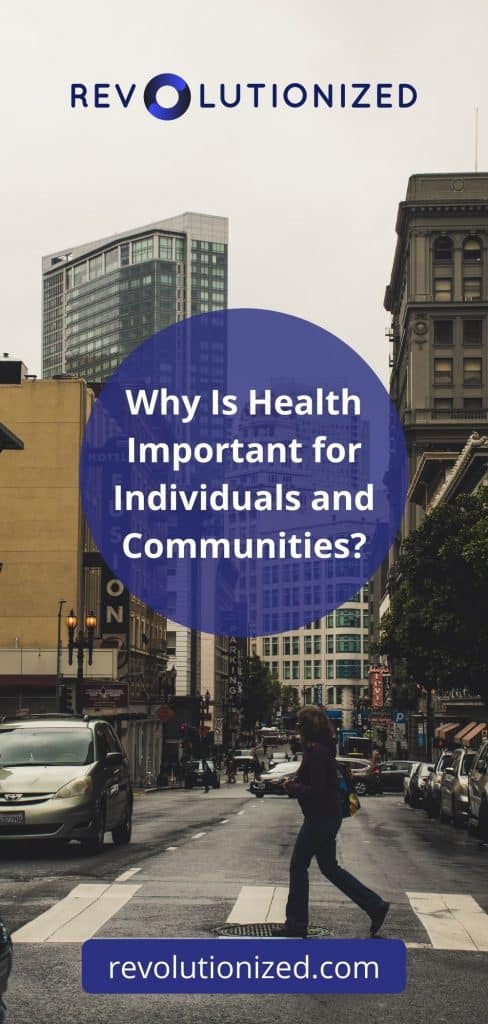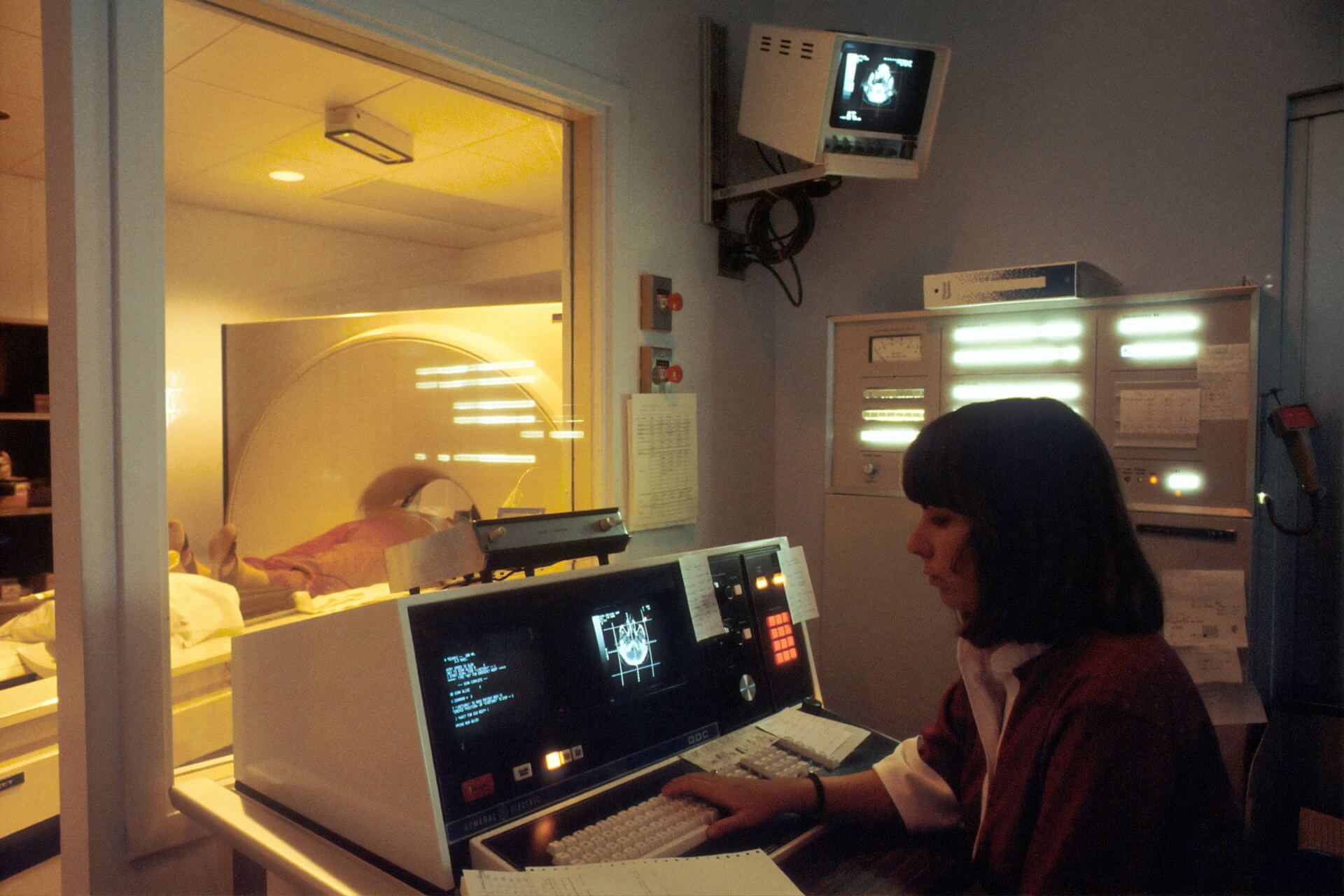
Why Is Health Important for Individuals and Communities?
July 16, 2020 - Emily Newton
Revolutionized is reader-supported. When you buy through links on our site, we may earn an affiliate commission. Learn more here.
Most of us know firsthand the importance of health from our day-to-day lives. Temporary sickness can keep us from working, relaxing and living our lives to the fullest. More severe illness can have long-term impacts on our health. When we don’t have access to the care and nutrition we need to stay healthy, we may suffer serious harm that can eventually translate into long-term illness or disability.
The harm that poor health can cause isn’t just limited to us as individuals. Your health can actually have a serious impact on your community’s well-being, too.
New research on community health and disease transmission is starting to reveal just how intertwined individual and community wellness are. When you get sick, it spreads far beyond you. Everyone around you can feel the effects, and in more ways than you may expect.

Here is why individual health is so important — and what impact it can have on your community.
The Importance of Health & Healthy Habits for Community Health
Some of the connections are obvious. If you’re sick, people who are close to you are also likely to get sick.
Or, if you’re healthy and everyone around you is sick, you’re much more likely to be exposed to potential vectors of disease transmission. No matter how strong your immune system, if you’re exposed to enough viral or bacterial particles, your body will eventually get swamped. And then you’ll be sick — which means you may start adding to the problem, making it more likely that others will become ill.
The Flu
The flu is a good model. If you’re sick with the flu, you create droplets every time you speak, cough or sneeze. These droplets contain the virus — experts believe this is how it spreads. Masks can catch these droplets.
The typical reproduction number for the flu — meaning the number of people one person will spread the flu to, on average — is between 1.5 and 3.0. If enough people wear effective masks, this number can easily drop below 1.0. This means that the flu’s spread will be contained because, on average, less than one person will be infected for each individual who’s already sick.
Even the best available masks — most often, single-use surgical masks — aren’t virus-proof. But real-world evidence from countries where mask-wearing is a social norm for flu season suggests that almost any mask can cut down that transmission rate.
Masks can also help keep you from getting sick in the first place, which is the best way to keep the people around you healthy. Other health habits, like regular hand-washing, eating a nutritionally complete diet and staying active, will also help. This is why major health organizations promoted masks during the response to COVID-19 as one of several healthy habits that could prevent the spread of the virus.
Smoking
Similarly, some health behaviors will hurt both your well-being and the wellness of others. Smoking is a big one. Secondhand smoke won’t hurt someone as much as a long-term smoking habit, but it’s still harmful. Smoking can also make you more susceptible to certain infectious diseases — which, again, can hurt the people in your community.
The relationship between individual and community health also works in reverse. If the community’s health improves, your own health is likely to get better. How can you tell if a community values the importance of health? Look to policy makers in the area to see what industries they are investing in. Also explore your neighborhood. Improved access to recreational space, green spaces, nutritious food and healthcare providers benefit everyone in a community.
Steps You Can Take to Stay Healthy
When you’re sick, try to avoid exposing others. Where possible, limit your movement in public and take precautions if you do go out. While you’re sick, you could have a roommate or family member do the grocery shopping. Have your prescriptions and other essentials delivered if if possible.
Take steps to improve your health as an individual. For example, we know that poor nutrition can have a major impact on mental health, especially over long periods. And poor mental health can negatively affect your immune system, making you more susceptible to disease. Improving your diet can improve your mental condition and immune system.
It’s also a good idea to watch out for vitamin and mineral deficiencies. Iron, iodine, vitamin D and vitamin B12 deficiencies are all fairly common in the United States and can have severe health impacts. Eating foods rich in these vitamins and minerals can help keep you healthy.
Regular activity is vital to preserving your wellness. It doesn’t take that much exercise to unlock the immune benefits of routine exercise. Just 150 minutes a week of low-to-medium-intensity exercise — like five 30-minute walks — can do the trick.
Most importantly, you should keep others’ health in mind. The quality of outdoor air, availability of nutritious food and cleanliness of local water all majorly impact community health. The mental health of those around you also influences community well-being. Simply being an active member of your community and building trust with your neighbors can go a long way in keeping everyone mentally healthy.
Stress the Importance of Health in Your Community
Just about everyone knows the importance of health. However, not everyone is aware of how their wellness choices can have significant impacts at the community level.
Infectious disease — like the flu — will always be a problem. Some research even suggests that future flu seasons may get more severe over time. While we can’t control how infectious or damaging these diseases are, we can limit their spread and keep ourselves healthy. These little decisions can keep the people around us feeling well.
Revolutionized is reader-supported. When you buy through links on our site, we may earn an affiliate commission. Learn more here.
Author
Emily Newton
Emily Newton is a technology and industrial journalist and the Editor in Chief of Revolutionized. She manages the sites publishing schedule, SEO optimization and content strategy. Emily enjoys writing and researching articles about how technology is changing every industry. When she isn't working, Emily enjoys playing video games or curling up with a good book.







